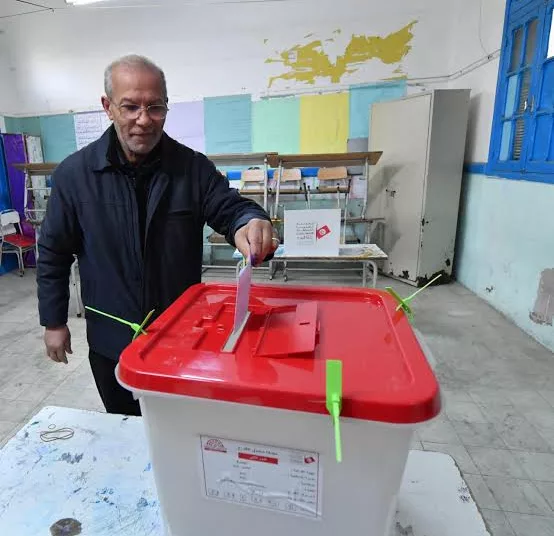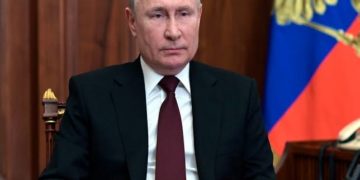Tunisians trickled into polling stations on Sunday in a low-turnout election for the first-ever members of the National Council of Regions and Districts, a new upper chamber of parliament pushed through by President Kais Saied.
Critics of Saied claim the elections are another step in what they perceive as the president’s “authoritarian” agenda.
Saied, a former law professor elected president in 2019, assumed executive powers two years later, dismissing the government, dissolving parliament, and announcing his intention to rule by decree.
The elections required nine million eligible voters to choose over 2,000 councillors from a pool of about 7,000 candidates, as outlined by the Independent High Authority for Elections.
Opponents of Saied called for a boycott, labelling the election “illegitimate” and “imposed.”
Anticipating a low turnout, polling stations opened at 8:00 am (0700 GMT). By midday, they remained significantly vacant, according to AFP.
Over 260 prominent Tunisian figures signed a petition denouncing the election as “futile,” accusing Saied’s government of “persisting with its political agenda imposed on” the populace.
Allegations against the election aimed to “undermine local authority, disperse it, and turn it into another compliant tool in the hands of the executive branch.”
Since February, authorities have detained over 20 opposition members, including Ennahdha party leader Rached Ghannouchi and Jawhar Ben Mbarek, co-founder of the National Salvation Front, among others.
The election results will pave the way for local, regional, and district councils, establishing the framework for the second parliamentary chamber.
Saied’s constitution, ratified in July 2022, introduced two parliamentary chambers — the Assembly of People’s Representatives and the National Council of Regions and Districts.
The assembly, with minimal authority, commenced operations earlier this year after an opposition boycott and a mere 11 per cent voter turnout.
The inauguration of the council — the subject of Sunday’s election — is scheduled for June 2024. The council will oversee the state budget, and regional development projects, and its members will be chosen through a complex process involving local votes and random selection.
Preliminary election results are expected on December 27, with a potential second round scheduled for February, the date yet to be confirmed.











